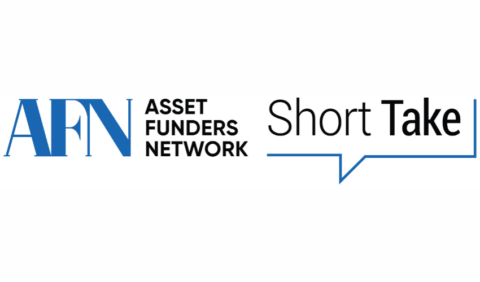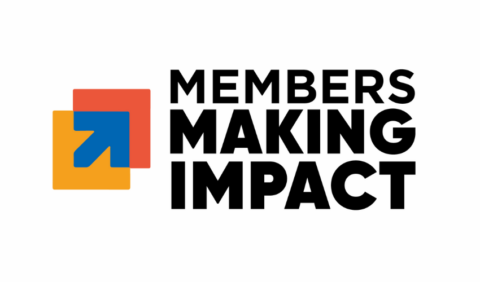 A Conversation with Kate Reeves, Director, The Connecticut Project
A Conversation with Kate Reeves, Director, The Connecticut Project
Kate is a Director at The Connecticut Project where she collaborates with partners and communities to address financial barriers and systems so that Connecticut families regardless of race, gender, or geography can build financial security and wealth.
As states nationwide explore innovative strategies to build economic security and mobility, Baby Bond programs are gaining momentum. Currently, 20 states are considering or have introduced Baby Bond legislation, with Connecticut, California, and Washington, DC already passing and funding such initiatives. While these policies are groundbreaking, the real work begins once they are passed.
Philanthropy can play a crucial role in supporting the public sector during the critical implementation phase to ensure these programs reach the families they are intended to help. One area where philanthropy can have a powerful impact is bridging gaps, providing technical assistance, and helping state agencies overcome logistical challenges.
Kate Reeves, Director of Financial Wellbeing & Wealth Building at The Connecticut Project (TCP), offers valuable insights from her experience with Connecticut’s pioneering Baby Bonds initiative—the nation’s first state-funded program designed to invest in children at birth. These programs are a powerful tool to help disrupt the “birth lottery,” providing every child with an initial capital investment and giving them a better chance to build wealth.
What led your organization to become involved in Connecticut’s Baby Bonds effort, and what role are you playing in the implementation process?
TCP was founded in 2021, just after Connecticut passed its landmark $400 million Baby Bonds legislation. As an organization focused on making Connecticut work for working people, our interest was in supporting the program’s execution to maximize its ability to reach families.
The State Treasurer, Erick Russell’s office had developed a vision for the initiative, and we collaborated with them to identify two areas for additional support: 1) providing funding for a consultant to build a strategic implementation plan including a beneficiary journey map, communications plan for families, key staffing plan and 2) interim capacity to support implementation during the state’s formal hiring process of staff to lead the program. Our targeted assistance is designed to support the Treasurer’s Office to launch the program efficiently while building a sustainable infrastructure for long-term success.
What aspects of large-scale Baby Bond programs often get overlooked but are essential for success?
A program as large and as new as the Baby Bonds program requires robust infrastructure to support implementation, including ongoing communications with families. During the recent Baby Bonds policy discussion at the Federal Reserve Bank of New York on January 16, it was highlighted that it has been difficult to keep in touch with the family of the first baby to receive a Baby Bond. We are working to help the Office of the Treasurer ensure it has the communications infrastructure to solve these kinds of challenges so babies and their families can get the most from their Baby Bonds.
Communication and community engagement are critical to the success of any large-scale public initiative. In Connecticut, we’ve worked closely with the Treasurer’s Office to enable them to create a plan for direct notifications and regular updates for families to keep them informed throughout the life of the program. This includes plugging in community-based organizations, which can be a critical resource for reaching families where they are, building trust, and ensuring engagement.
What advice would you give other funders considering partnering or supporting public initiatives of this scale?
Start by recognizing the unique strengths of philanthropic capital – we should be nimble and fill critical implementation gaps while public programs navigate longer-term processes. Our role is to strengthen government systems, not replace them.
In Connecticut, we’ve learned that effective public-philanthropic partnerships require strategic government capacity building. Working with government as a partner, we’ve focused on:
- funding technical assistance for new program implementation;
- supporting positions to implement the program during lengthy government hiring processes; and
- strengthening connections between agencies and community organizations.
Philanthropy can also bridge gaps between government programs and community needs. We are on the ground ourselves, and our other on-the-ground partners will also be key to identifying implementation challenges early and ensuring programs are responsive to family needs.
——————————–
As Baby Bond programs transition from bold policy ideas to real-world implementation, the role of philanthropy becomes even more essential. AFN is grateful to The Connecticut Project for sharing their experience and insights, demonstrating how thoughtful public-philanthropic collaboration can help Baby Bonds become a powerful tool for advancing equity and building generational wealth from birth.



